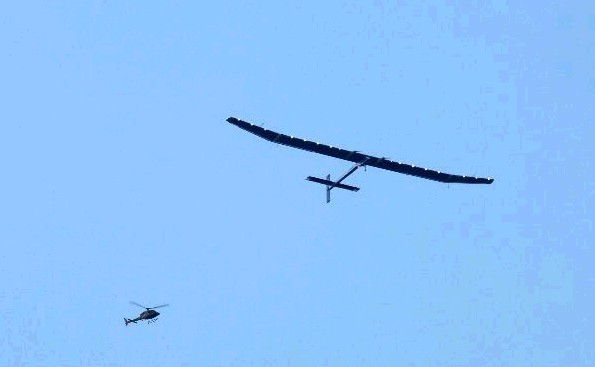The report by the Department of Agriculture on May 10 that the country's rice production grew by 4. 10 percent for the first quarter compared to the same period last year has buoyed hopes that the Philippines could finally achieve rice self-sufficiency soon.
Agriculture Secretary Proceso Alcala described the expansion of the rice sector by 15.63 percent to 4.03 million metric tons in the first quarter as "unprecedented."
"It was the highest rice volume we have seen since Filipinos started planting rice," Alcala said.
Agriculture's expansion, although lower than the target of 4.5 to 5.5 percent, was a turnaround from last year's negative growth and was the fastest first-quarter growth since 2004, as rains boosted corn and rice production, the Department of Agriculture said.
Data from the department showed that palay or unmilled rice production was only 3.49 million metric tons in the first quarter of 2010 because of drought.
Alcala said the palay sector's performance for the first three months this year was a step toward rice self-sufficiency by 2013, a key midterm goal of the administration of President Benigno Aquino III.
But despite this positive development, agriculture experts believe that without the adoption of hybrid rice varieties, first developed in China, along with new farm technology and equipment, the country could not hope to be self-sufficient in the staple food in 2013.
Ronilo A. Beronio, executive director of state-run Philippine Rice Research Institute, said the hybrid palay varieties his agency has developed with the International Rice Research Institute, such as tropical indica and japonica, can produce as much as 10-12 metric tons per hectare or almost thrice the 3.8 metric tons per hectare national yield average.
Philippine National Rice Program director Frisco G. Malabanan also said earlier that hybrid rice seeds yield 15 percent more than the 4 to 5 metric tons per hectare produced by certified seeds.
The government has set a goal of expanding hybrid rice coverage to 500,000-700,000 hectares by 2013 from the current coverage of 375,000 hectares.
The Philippines could also learn from the latest developments in hybrid rice technology from China.
Yuan Longping, known as the "father of hybrid rice", has said that his team is working on a new version of high-yield hybrid rice and might complete it in 2012.
Yuan, director of China's National Hybrid Rice Engineering Technology Research Center and a faculty member of the Chinese Academy of Engineering, said the new phase-III super hybrid rice is expected to yield 13.5 metric tons of rice per hectare.
The previous hybrid, the second-generation super hybrid, was released for commercial production in 2006, yielding 9 metric tons of rice per hectare, on average.
Rice is a major food crop that feeds more than half of the world's population, Yuan said.
China is now planting 29 million hectares of rice per year, with an average output capacity of 6.3 metric tons per hectare.
Among the acreage, hybrid rice accounts for about 57 percent of the total, with an average output capacity of 7.2 metric tons per hectare.
Yuan, a Ramon Magsaysay Awardee for Government Service in the Philippines in 2001, said that the average yield of hybrid is at least 20 percent more than that of inbred rice, adding that this would feed 70 million more people annually.
According to China's Ministry of Agriculture, China needs to maintain an annual grain output of 500 million metric tons to feed the nation's 1.3 billion people.
"Hybrid rice will play a key role in ensuring food security worldwide in the new century," Yuan said.
He said if 50 percent of the world's paddies is planted with hybrids, rice production could be increased by another 150 million metric tons, enough to feed 400 to 500 million more people.
Statistics from the United Nations showed that about 1 billion people still suffer from hunger and malnutrition and every six seconds a child dies of hunger or related diseases.
The production of hybrid rice seeds is now being commercialized in other countries, including the Philippines, India, Vietnam, Bangladesh and the United States.
In fact, in the Philippines, a local firm, the SL Agritech Corp, has been exporting hybrid rice seeds to neighboring countries in Southeast Asia starting 2007.
The Philippines is now third, after China and India, as hybrid rice seeds exporter.


 23:41:00
23:41:00
 Latest News
Latest News

 Posted in:
Posted in: 








